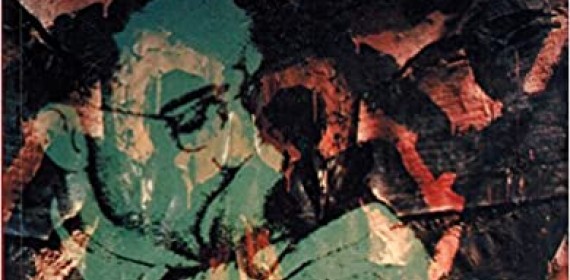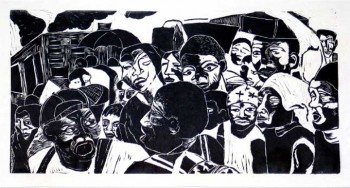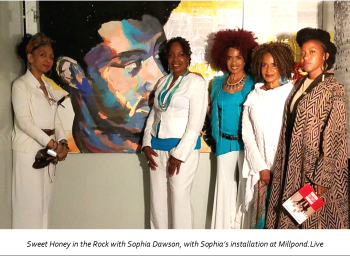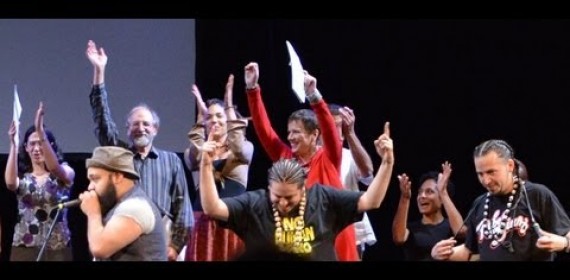Art & Activism
At the RFC, we celebrate the power of art and artists to spark conversation and move people to action, while also creating beauty and community. We know that was true during the Harlem Renaissance and the Red Scare and the Civil Rights and Anti-War Movements and it’s still true today.
Artists and public intellectuals—many of whom were communists, radicals and/or people of color—were a vital part of the community that fought for to save the Rosenbergs and, along with Abel and Anne Meeropol, provided a supportive, nurturing environment for Michael and Robert following their adoption. Paul Robeson and Pete Seeger performed at benefit concerts for Ethel and Julius in the early 1950s and the boys met Abel and Anne for the first time at the home of WEB DuBois, who wrote passionately against the executions.
"Our community requires an organization that aids children in this country whose parents have been targeted in the course of their progressive activity. Please join me and the thousands of RFC supporters who stand with those who resist."
Join our Community
In 1983, Rob Okun (a friend of RFC Founder and Rosenberg son, Robert Meeropol) founded the Rosenberg Era Art Project (REAP).
''Unknown Secrets: Art and the Rosenberg Era,'' a collection of more than 60 pieces of art inspired by the Rosenberg Case, grew out of REAP and toured the country in 1990. The exhibit resulted in a book, The Rosenbergs: Collected Visions of Artists and Writers, and a film.
The “Song of the Century” according to Time Magazine in 1999, was written by Abel Meeropol (aka Lewis Allan) in the late 1930s. The stark and haunting anti-lynching anthem, which Meeropol originally wrote as a poem entitled “Bitter Fruit” before changing the name and setting it to music, was first performed by Abel’s wife Anne at teacher’s union meetings. Billie Holiday made an iconic recording in 1939, and numerous other artists have since released their own versions. Strange Fruit still inspires a vast array of art and culture around the world today.
Art and Our Community
"The Rosenbergs" by the R.J. Phillips Band
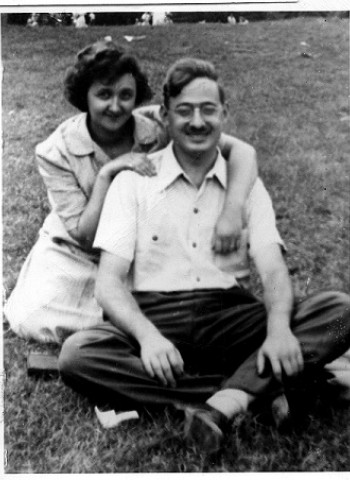
Celebrating Art & Activism
Creativity Makes Our Community Blossom
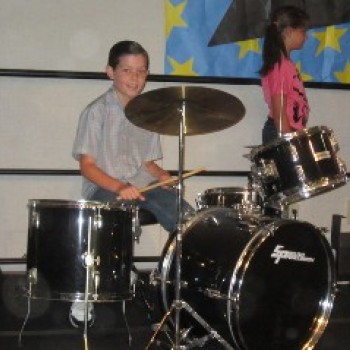
As an RFC supporter, you probably are aware of the value the RFC places on the Arts. We believe that artistic expression can serve as a therapeutic outlet in our beneficiaries’ often-turbulent lives. We also recognize art’s powerful role in building community, especially within progressive movements.
From July 17th-21st, 2014, thousands of people came together at locations around New York City and NY state to take part in Seeger Fest, a celebration of the lives, work, activism and music of original RFC Advisory Board members, Pete and Toshi Seeger. The RFC was proud to be one of this remarkable and historic event’s sponsors.
As RFC Advisory Board member Angela Davis has noted, “Artists are an integral part of any movement for justice.” Artists were among the most prominent supporters of the fight to save Ethel and Julius Rosenberg in the 1950s, and have been involved in the Rosenberg Fund for Children since our inception in 1990.
On Sunday, June 16, 2013, the RFC commemorated the 60th anniversary of Ethel and Julius Rosenbergs’ executions with a benefit event at The Town Hall in New York City, entitled, CARRY IT FORWARD: Celebrate the Children of Resistance.
CELEBRATE THE CHILDREN OF RESISTANCE was a dramatic program presented by the RFC between 1997-2007, with minor updates for each performance. These events honored the progressive legacy that Ethel and Julius Rosenberg left to their sons while celebrating the courage of current activists.
The RFC was created to echo the type of support that Robert and Michael received from the extended progressive community after their parents were killed. Many of our grants are for artistic or creative programs: art, dance, drama, music because we recognize the healing power of art.
These opportunities for creative expression can provide a safe harbor for young people in difficult circumstances and, as we’ve seen throughout our history, art can also inspire movements in dark times.
As one beneficiary who received a grant for music lessons explained, "We were so excited when we learned that you had decided to give grants for our music lessons. It has been difficult to pay for them since our father lost his job. Thank you for recognizing how our dad was singled out for his stand against war, and for realizing music's importance to our family."

A beneficiary who has received numerous grants for violin lessons shows off his skills.
Three beneficiaries who have all received grants for music lessons give an impromptu performance at a Gathering.

